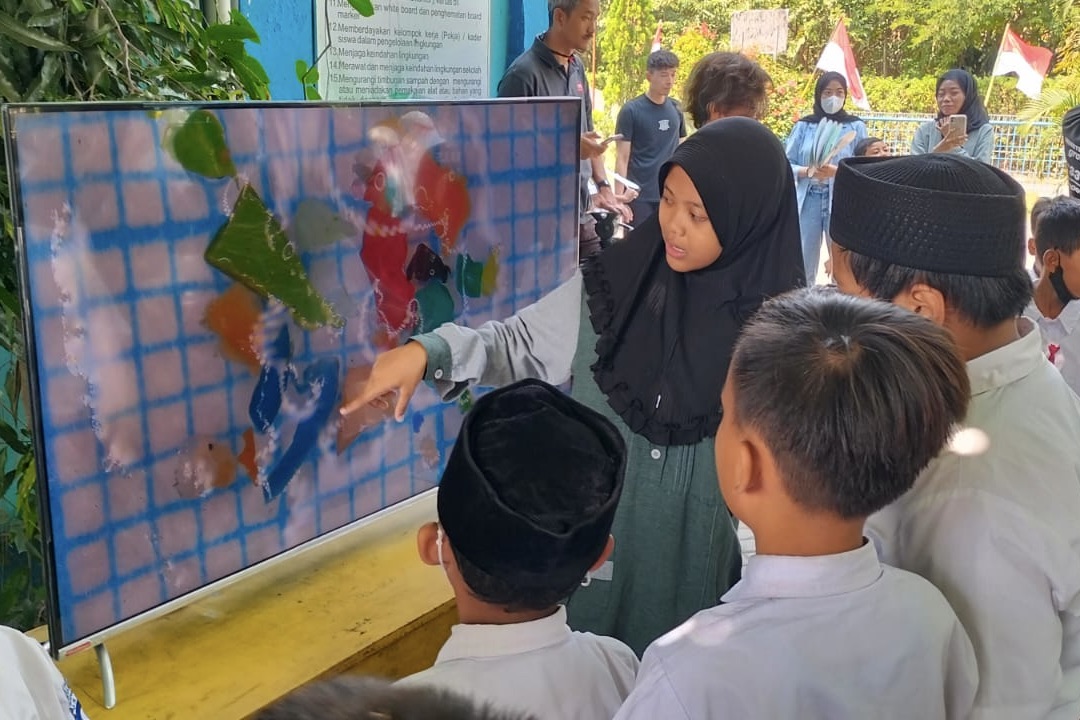Plastic free canteens at school in Indonesia
Our young ambassador Nina developed a plan to create plastic-free canteens at schools in Indonesia. This includes awareness regarding the reduction of plastic packaging to avoid plastic waste, and it also brings awareness regarding the overuse of sugar by children causing obese weight and health problems.

Stages of develop a sachet free canteen (Awareness, Reduce Waste)
- Form a team of teachers, staff and students to drive the Sakenah (Sadar Kelola, Kurangi Sampah) programme. Teachers and staff involved are 2 – 3 people. While involving as many as 15 people or 1 class.
- Develop a detailed timeline of the Sakenah School programme from the beginning to the end of the programme, including regular coordination with teachers, students and guardians, the student learning process, and assignments to students.
- Coordinating with teachers and students’ parents. At this meeting, the school explained the programme and its objectives to the students’ guardians. The guardians and students who participate in this programme are called the Sakenah family.
- Sakenah student learning. Students who are members of the Sakenah school programme will receive regular lessons. There are 4 topics of learning that students must master, namely microplastics, dioxins, waste sorting and composting.
Sakenah Family Collaboration Action. Students apply the lessons learnt at school and practice them at home. Students are given a project to create an action at home that is carried out with the family to overcome plastic pollution. One of the things that students have done is sorting waste and bringing organic waste to school.






